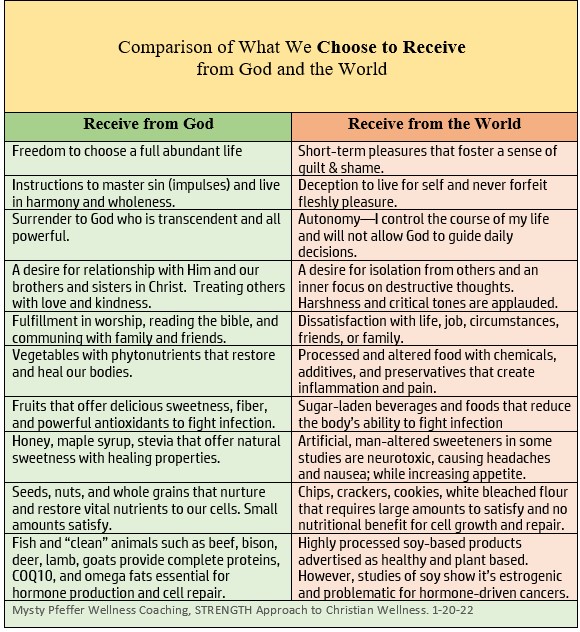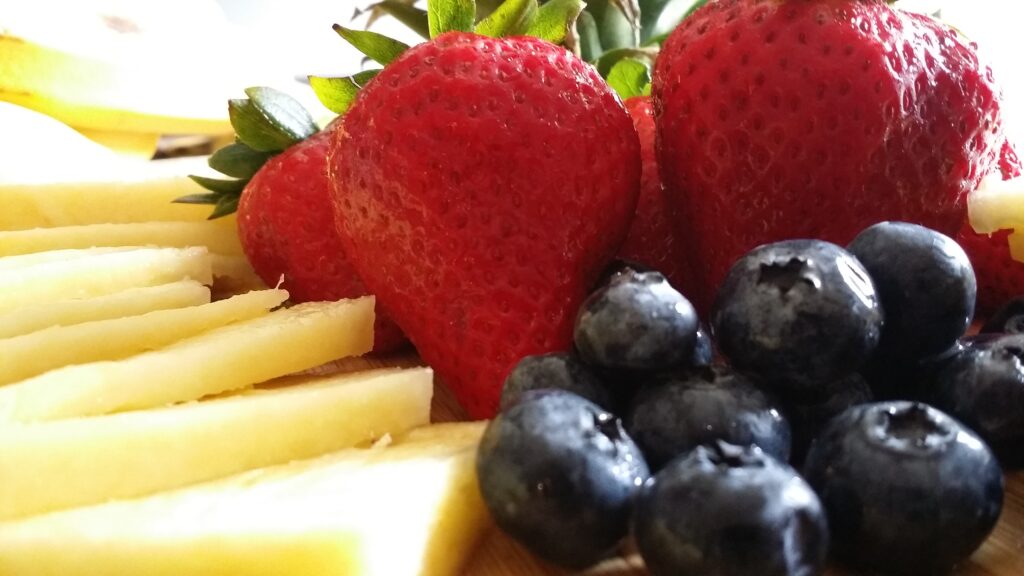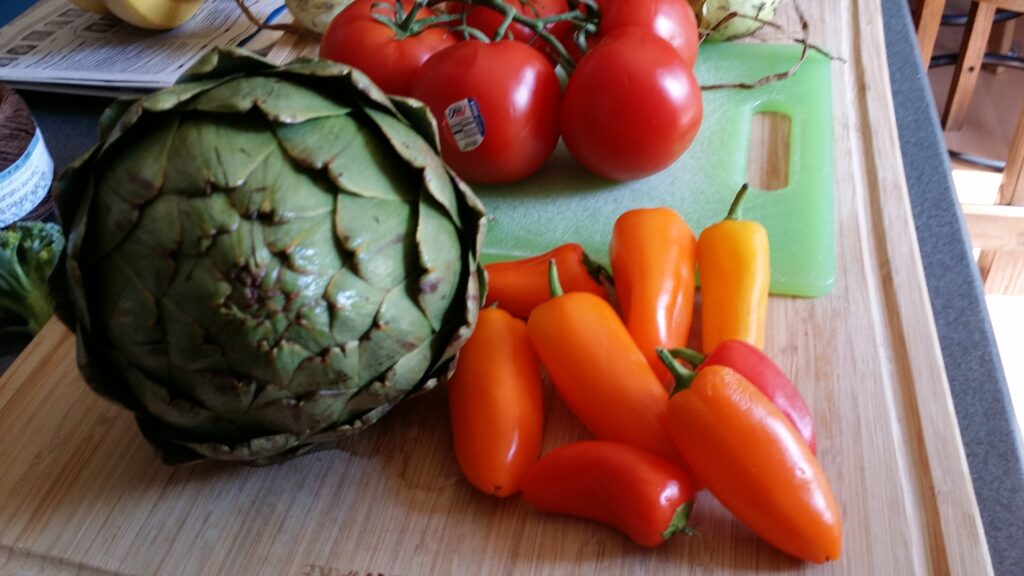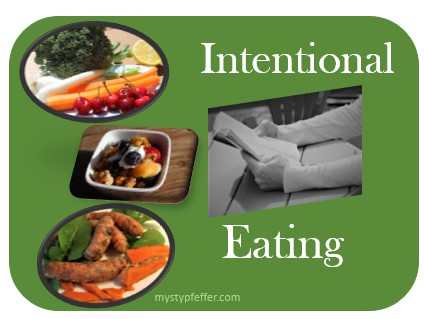15 Strategies to Begin Intentional Eating: Living the Life God Calls us to Live.
The introduction a few weeks ago of Intentional Eating is part of a plan to help you and I, as participants in the body of Christ, live the abundant life God calls us to live. Change begins when we want something better. This may be a better night’s sleep, less pain, more energy, or less brain fog.
As a bible believing child of God, I want His Word to make an impact on my life in every single way and every single decision. So, my mindset is vital to the process of surrender and living for God instead of the desires of my flesh.
Sadly, it has to be the hardest thing I’ve ever done.
No one, including myself, thinks they have a food addiction. That is, until we embark on the next diet adventure or try to eliminate processed food. At that point, our eyes are opened pretty wide.
The apostle Paul understood the struggle so well! After a long battle with his desire to please God and please his flesh he says:
“For those who live according to the flesh set their minds on the things of the flesh, but those show live according to the Spirit set their minds on the things of the Spirit.”
In the scriptures, God gives clear instruction on how to follow him spiritually and physically. Since you and I are three-part beings, everything we do physically has spiritual impact. Just as everything we do spiritually has a physical impact. Focusing on Him for emotional needs and following His guidelines in the bible for our physical needs, will enable us to live an abundant life.
Mysty PFeffer
In looking at these emotions it is helpful understand our relationship to food. You know the unmet need-to-be-filled emotional roller coaster we venture upon when we’re bored, tired, sad, or lonely.
For others, it may not even be a relationship but mindless munching. Regardless of the reasons, we place a high value on pleasure and convenience in the choices we make every day.
The sad part is the choices we make are so automatic they require no thought or effort on our part. Don’t feel guilty at this point or beat yourself up, because our culture has taught us to think this way.
The advertising and the internet cookies make sure they know what you want when you type your first three letters into the search bar. They’ll even provide tempting pictures and headings of the items you and I look at often.
However, what would it look like to stop and think before every choice? Asking myself questions like, “Do my choices honor God and the temple of the Holy Spirit? Do they help me function the way He designed me to function?
Of course, we do…sometimes!
The late Dr. Rex Russell’s book, “What the Bible says About Healthy Living” shows us a better way. He gives us three principles of eating the foods God created for us, not altering God’s design, and not allowing food or drink to become an idol are simple and realistic lifestyle goals (1996).
So, with surrender and dependence on the Living God for guidance, here are 15 strategies to begin Intentional Eating:
- Intentional eating begins with prayer. Prayer for God to show you and I areas of addiction/idolatry that are hindering our daily function. Praying for wisdom to remove harmful substances and making them less desirable.
- Remove toxic food or food altered from God’s design from the weekly grocery list. If the package has ingredients we cannot pronounce, it has been altered from God’s original design and is meant for shelf life not our lives.
- Although we don’t want to waste food, intentional eating involves reading every label in the pantry, cabinet, and refrigerator. With our minds set on God and His plan, we can pray if we should buy it again. Also ask Him what we can replace it with, or maybe make our own version with ingredients we can pronounce.
- God created vegetables and fruit with powerful antioxidants. To date, over 8,000 phytochemicals have been identified by Scientists. These antioxidants work together to fight cancer, environmental damage from pollution, heart disease and more! Therefore, eating a variety of three to four servings a day are recommended to prevent disease. I know this is hard for people who don’t like vegetables. They must not have had a mom who insisted on them at least trying them frequently at mealtime as a child. The rewards of giving them another try makes retraining taste buds worthwhile. It can be done with fasting, prayer, removal of processed food, and repeated exposure. I cover this in week two of the STRENTH approach to Christian wellness.
- Give thanks for every day God gives us to be alive and an encouragement to someone else. We have the beauty of God’s Garden at our fingertips in every grocery store. It is an honor and privilege to have so much produce available to help us function. As we place Him high and lifted up in value above His provision for our daily comfort, we displace our potential idols.
- Another intentional eating approach is to understand it is not necessary to eat meat every meal, every day. Exchanging pork and beef for beans, legumes, vegetables, whole grains, nuts, and seeds, is a good start as we see clear direction in Gen 1:29. Eating chicken and red meat once a week in addition to plant items will give us adequate protein. Remember the festivals in the Old Testament? Israel ate meat at special occasions or for special guests.
- Eating more fish is an excellent way to improve heart healthy, inflammation reducing omega 3 in God’s eating plan. Jesus served fish, ate fish, talked about it and used them in his miracles. It’s worth eating frequently and abundantly. However, Dr. Russel points out in his book, shellfish and catfish are bottom feeders and toxic chemical filters, they will make you sick! Therefore, they are not on God’s list of good things to eat.
- Dr. Russell also reveals in his book that pigs eat until they are engorged, and they’ll eat anything, including raw sewage. Have you ever sat down to eat pork and it smelled funny? Their stomachs can’t handle all the food, so it seeps into their muscle, along with all the toxins, chemicals, parasites, and viruses they consumed. So gross, you and I may rethink this process before eating pork (1996).
9. Using portion control keeps us from placing food in the idol position. Since our stomachs are roughly the size of the fist, a plate just a little larger than the fist will hold what our bodies need. Experts suggest balancing the plate with a healthy protein, fat, and carbohydrate. The great news about eating from God’s Garden is vegetables and fruit provide all the macro and micronutrients we need to live! God loves us bunches, doesn’t he?
10. Slow down when chewing. Digestion begins in the mouth with an enzyme called amylase. Honestly, how many times do you and I frequently swallow half-chewed food? More than I care to admit. It will help you enjoy your food more, make your satisfied quicker, and digest it better with less gas and bloating.
11. Avoid eating three hours before going to bed or after supper. Eating right before bed can interfere with sleep and the body’s natural detoxification process. Fasting during this time allows it to remove toxins and wastes more effectively. It’s also a good time to wind down and begin a time of reading and prayer. Such practice helps prevent food or drink from becoming a God.
12. Drink plenty of water, the standard 8-10 glasses, depending of energy exertion is a nice guideline. Unless there is a reason for water restriction in people on dialysis or with heart failure, it is safe to consume this amount of water each day.
13. Reducing soda consumption is a smart and intentional way to reduce caffeine, sugar, and artificial sweeteners. Also, the phosphoric acid in soda beverages rob calcium and precious minerals from the bones. A process that especially harmful for children who are building bone and adults who are trying to maintain the bone they have! Excess caffeine, sugar, and artificial sweeteners are thieves of good health. God didn’t make or even think about His people drinking pop (according to the bible). But man, sure has a way of making this poison look and taste appealing to line his pocket.
14. Alcohol consumption is another thief of health. It may be best for special occasions, or if it’s an addiction, avoided altogether.
15. Last, but not least, intentional eating helps us be aware of sugar intake. Large amounts of sugar contribute to diabetes, premature aging, decreased muscle tone, robbing of minerals from the blood to balance its effects, hyperactivity in children, obesity, cancer, decreased immunity, and heart disease. And this is only the beginning. Removing or drastically decreasing our desire for this substance is something to pray about.
Encouragement for Implementing Your 15 Strategies of Intentional Eating
In conclusion, God has plenty to say about what he put in the original garden as “good”. He also gives us plenty of warning about idolatry. Any substance that has power over our everyday decisions and our health is an idol. But he has given us a way to overcome the world, the flesh, and the devil. His son came a took all our sin upon himself in his death and redeemed us through his resurrection.
Praise God, we can count on the Holy Spirit to guide us through this process.
I am happy to serve you and offer recipes, and strategies to begin intentional eating. Pleasing our Father in heaven more may become more rewarding than satisfying our physical cells in the days to come. I find this hard too, and I’m with you, so if you need a coach to walk alongside you, I am here! Contact me at Mysty Pfeffer Wellness Coaching.
REFERENCES:
BibleGateway.com: A searchable online Bible in over 150 versions and 50 languages.
Russell, Rex (October 2006) What the Bible Says About Healthy Living, Revell, 304 Jones Cove Rd. Asheville, NC 28805.








